Faculty News
Luis Dávila Retires | Olga T. Impey Retires | Faculty News | Ryan Giles Joins Faculty
Luis Dávila Retires

Luis and Bobbi Dávila with daughters Serena and Roxanne and families.
Professor Luis Dávila devoted his entire professional teaching career to Indiana University, Bloomington. He arrived in Bloomington for the fall semester of 1969 and continued teaching until his retirement 42 years later in December 2011.
Luis was born and raised in San Antonio, Texas. His father was a 1930s Mexican political refugee who fled Mexico following the Cristero war. At home, his mother kept the traditional language and customs thriving within a close Mexican family environment. Luis graduated Magna Cum Laude from St. Mary's University of Texas with a BS in chemistry in 1960. After working as Formula Editor at Chemical Abstracts Services (a division of the American Chemical Society) in Columbus, Ohio, for three years, Luis committed to his passion for literature as his ultimate career goal. He entered the Romance Languages department at Ohio State University for both his MA in Spanish and his PhD in Romance Literatures and Cultures (1970). He wrote his dissertation, "The Antipoetry of Nicanor Parra," on the works of the great Chilean poet, under the direction of Dr. Marta Frosch.
Luis was one of the first recipients of the prestigious National Endowment for the Humanities (NEH) "Younger Humanist" Fellowships (1972-73), and in 1985, he was named an Owen Duston Scholar at Wabash College. Luis' scholarly and creative pieces appeared in such journals as Revista Chicano-Riqueña, Revista Iberoamericana, and the Journal of Hispanic Literatures. He served as an editor for the well-known Twayne books, publishing 18 scholarly volumes on Latin American literature between 1977 and 1983. He was active in planning and serving on committees for many conferences over the years, but two symposia stand out as especially memorable to him: one on the works of Tomás Rivera and the other on Richard Rodriguez, both of whom were present at their respective events. Luis's work was recognized both nationally and internationally. He was invited to give lectures and presentations across the United States, from Boston to Honolulu, as well as abroad in Canada, Mexico, France, Italy, and Spain.
Shortly after arriving in Bloomington, Luis advocated for a separate program that studied the US Latino culture, language and evolving literature. By 1973, the IU administration was aware of this need and the Chicano-Riqueño Studies Program was born. This unique combination of Puerto Rican and Mexican Latino Studies was groundbreaking in the US and so recognized by many distinguished professionals and institutions. Luis served as the Chicano-Riqueño Program Director for 38 years and was also one of the founders of the Revista Chicano-Riqueña, a groundbreaking journal devoted to Latino cultures, which he co-edited with Nick Kanellos from 1973 to 1980. This journal raised interest in the Chicano-Riqueño Studies Program curriculum with an accompanying boost in enrollment. His nine individually published "Meditaciones" in the journal brought him much praise from the US Latino academic community. Several of the "Meditaciones" have been anthologized in volumes and textbooks. Luis also strongly supported the journal Chiricú as the faculty advisor. This journal was one of the few US Latino journals published from start to finish by graduate students. Both Chiricú and the Revista Chicano-Riqueña brought recognition to Indiana University and the Department of Spanish and Portuguese under which the Chicano-Riqueño Studies Program originated.
Luis served as Chair of the Department of Spanish and Portuguese between 1983 and 1989. For two of those years, he even served concurrently as the Director of Graduate Studies, guiding it through some tumultuous years as the need for language requirements was being discussed and educational trends across the country were changing. Within the department, he created eight new undergraduate courses and two new graduate courses. Luis spent a year in Madrid, Spain, as the faculty director of the IU Graduate Studies Seminar (1976-77), and he directed three student summer programs at the Universidad Iberoamericana in Mexico City (1972, 1990, and 1994). Beginning in 1996, Luis served as the Director of the department's Honors Program, an experience that led him to the Honors College where he taught for seven years (1995-98 and 2002-06). Luis also considers it a special honor to have been asked by 28 PhD students to be the director of their dissertations. He also served on many other dissertation committees as well as MA and undergraduate Honors thesis committees. This intense advisory work on his part led to long-standing professional relationships that still exist with many of these students.
At the level of the University and the profession, Luis served as a member of the Bloomington Faculty Council (1992-94, 1996-98, 2000-02, and 2005-07). He was also a Bloomington member of the University Faculty Council for four of those years and served as a member of the Executive Committee for the Bloomington chapter of the American Association of University Professors (AAUP) between 2005 and 2007. Since early on, Luis has also been a committed member of the local and state communities, serving, for instance, as a member of the State of Indiana Civil Rights Commission (1973-75) and of the steering committee of the Chicano Art Exhibit at the Indiana State Museum in Indianapolis (2003). He volunteered as an enrichment teacher at Marlin Elementary School (1977-78), as a "Great Books" instructor to the young students at St. Charles Elementary School (1983-84), and to teach alumni and other participants at the summer Lifelong Learning Mini-University (1997, 2004, 2005 and 2006). He recorded poetry readings for WFIU and answered telephones for their fundraising campaigns. In 2008, the Latino Alumni Association awarded Luis the Distinguished Latino Faculty Award in recognition of his outstanding achievements to Indiana University and the Indiana University Latino Community for over 30 years.
Luis met his wife of 46 years, Bobbi, while both were graduate students at Ohio State. They have two daughters, Roxanne and Serena, who both graduated with BA degrees from Harvard University with honors. Roxanne then received her PhD from Yale University in Spanish and Portuguese and is currently teaching at Tulane University. She lives in New Orleans with her husband and daughter, Aura. Serena received her JD degree from the Northwestern University School of Law and currently lives in the DC area where she works at the Hispanic Association of Colleges and Universities (HACU). She and her husband have one son, Amadeo.
To say the least, the long and short of these reflections bears out the large role that Bobbi Dávila has put forth in helping develop Dávila family life. Luis offers "extreme gratitude to Bobbi, for without her none of this would have been realized."
Future plans are dependent upon the transplanted kidney Luis received in December 2011 which he hopes lasts a long time. In the meantime he plans to write memoirs of some unique Chicano experiences, visit with his family and friends, and enjoy movies and books for pleasure, as well as travel, when possible. He would also like to continue work in the flower gardens he once cultivated on the property of the Dávila home.
Olga T. Impey Retires
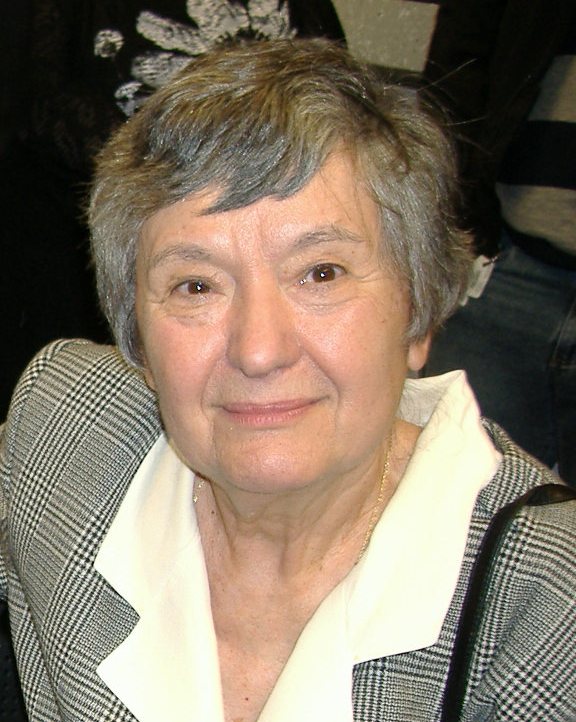
Olga T. Impey
Olga T. Impey retired from Indiana University on December 31, 2011, after being on the faculty of the Department of Spanish and Portuguese for 37 years. She received the equivalent of a BA and MA degrees in Spanish and Romance Philology at the University of Bucharest (Romania). She completed her PhD in 1972 at the University of Kentucky with a dissertation on the historiographical prose of Alfonso X under the direction of John E. Keller. She taught Spanish literature and Romance Philology at Princeton University for three years before coming to Indiana. Impey was the first woman to obtain tenure in the Department of Spanish and Portuguese. She became an Associate Professor in 1981 and Full Professor in 1994. Since 1975 she has offered an impressive range of courses, with special interests in Medieval and Renaissance Spanish literature, Spanish historical grammar and paleography, Romance philology, and literary theory. In addition to directing numerous PhD dissertations, Olga has been very active in promoting the intellectual atmosphere within the department by organizing lectures, symposia and colloquia, whose participants have been the most distinguished scholars in the fields of Spanish Medieval and Renaissance literatures such as Elias Rivers, Manuel Alvar, López Estrada, Carmen Parrilla, Pedro Cátedra, Alan Deyermond, Colin Smith, Dorothy Severin, Michael Gerli and George Greenia, among others.
Professor Emeritus Heitor Martins regards Impey as one of the most distinguished faculty in the history of our department: "Olga is a complete scholar, both teacher and researcher. Her outstanding knowledge of Medieval Iberian literature is responsible in great part for the recognition IU has as a national center for these studies. Her contributions to the curricular renovations of our program–from her course on Paleography to the Contemporary Literary Theory class--attest to her ability, competence, and intellectual curiosity. As a colleague of hers for well over thirty years, I have only to say it has always been a pleasure and a privilege to work with her." Professor Emmanuel Mickel concurs: "As [an early] Director of MEST, it was a great pleasure for me to meet Olga, a colleague whose scholarship and integrity I came to admire. Olga was everything a good colleague is supposed to be: a person who gives her heart and soul to learning and teaching her students, and is a good team-player in the institute. Olga's own scholarship is marked by the highest and most scrupulous use of texts and proofs." Professor Rosemarie McGerr, Director of the Medieval Studies Institute, also stresses Olga's many contributions to teaching and research: "Olga has been a highly valued member of the Medieval Studies faculty for many years. We greatly appreciate her active support of MEST events and her dedicated mentorship of students, and we applaud her many contributions to scholarship in Medieval Spanish literature."
Impey's research on Alfonso X's prose, on 15th-century Spanish literature (Rodríguez del Padrón's Siervo libre de amor and Bursario, the anonymous romance Triste deleytación, Diego de San Pedro's Cárcel de amor) and on comparative literary studies embracing Romania, Spain and Catalonia, has led to important publications, lengthy articles and review-essays that have appeared in prestigious journals. She has received major fellowships for her research, including a National Endowment for the Humanities Research Fellowship, a Newberry Library Fellowship, and a Council for the International Exchange of Scholars sponsored by the Fulbright Senior Scholars Program. She has also been awarded internal grants, most recently a College of Arts and Humanities Institute Fellowship. Impey's scholarly contribution to the field of Spanish Medieval sentimental literature obtained recognition in 2005 when renowned medievalists Alan Deyermond and Carmen Parrilla edited a Festschrift in her honor published in the University of London series Papers of the Medieval Hispanic Research Seminar. Whether writing about the sentimental novel, epistolary prose, Garcilaso de la Vega's eclogues, or transnational literary connections, Impey's passion for literature is the outgrowth of a career devoted to philological, textual and theoretical analysis.
Olga's passion and dedication has attracted some of the best students to her classroom. Galen Brokaw, now Associate Professor at SUNY-Buffalo, highlights Olga's "reputation as a demanding teacher with very high expectations," and Anthony Grubbs, now Associate Professor at MSU, her "energy, directness and knowledge [that] served to train many young scholars." Many students have praised her "superb mentorship" in directing PhD dissertations. Kathleen Sideli, Associate Vice President for Overseas Study at IU, who wrote one of the first dissertations under Impey's direction, reflects on her importance as a teacher and mentor: "Few graduate students are as fortunate as I was to have someone personally involved in their intellectual development. It was without question that she would be my dissertation advisor. I had constant access to Olga, who was indefatigable in providing me with comments, recommendations and encouragement. She pored over every sentence of that dissertation more times than I can count," and "Olga has been one of my most impressive female role models." In the conclusion of a letter written in April 2011, Jim Lynch sums up Impey's impact on her students: "You have touched our lives, hearts and minds, Olga. We will be forever in debt."
In her retirement, Impey will continue to take care of her 95 year-old mother (an Alzheimer patient), complete unfinished pieces of research and participate, whenever possible, in the activities offered by the Department of Spanish and Portuguese, the Medieval Studies Institute, and the Lilly Library. For leisure, she will take walks with her husband Michael around the lakes and woods in the vicinity of Bloomington, visit their son and daughter, Soren and Eileen in their far-away places, as well as the nuns of the Eastern Orthodox Monastery in neighboring Michigan. She will also spend some time with her niece, a student at IU, and – miracle of miracles – she will write, in long-hand, letters and cards to her friends, an activity she has hitherto completely neglected.
Faculty News and Awards
Maryellen Bieder published two articles: "Emilia Pardo Bazán: Veintiuna cartas a Gabriela Cunninghame Graham." Siglo Diecinueve 18 (2012): 29-64; and "Emilia Pardo Bazán and Gabrielle Cunninghame Graham: A Literary and Personal Friendship." Bulletin of Spanish Studies 89.5 (July 2012): 725-49. She also received an Overseas Conference Grant to present her research on Pardo Bazán's correspondence with Gabrielle Cunninghame Graham and Blanca de los Ríos at the Madrid Seminar on Social Networks and Women's Literary Practice, sponsored by Spain's Consejo Superior de Investigaciones Cientificas. She was also awarded a Research Travel Grant to travel to Spain for her project "Recovering Women's Letters: An Analysis of Correspondences between Spanish Women Authors."
Anke Birkenmaier and Erik Willis received an Overseas Study Program Development Grant to develop a new Summer Study Abroad Program in the Dominican Republic. The program has been successfully developed, approved, and will begin May 2013. Anke Birkenmaier also received a College Arts and Humanities Institute Travel Research Grant as well as a Grant-In-Aid for her project "Oswald Spengler in Latin America."
Vania Castro received a $2000 conference travel grant from IU's CIBER program in the Kelly School of Business to present a co-authored paper (with Luciana Namorato) titled "Teaching Portuguese for Business Outside the Classroom: A Case Study" at the University of North Carolina-Chapel Hill.
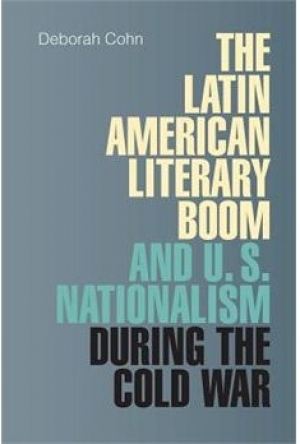
Deborah Cohn published her book The Latin American Literary Boom and U.S. Nationalism during the Cold War (Vanderbilt University Press, 2012). She was also the recipient of the Trustees' Teaching Award in the Department of American Studies.
Manuel Díaz Campos and Kimberly Geeslin published the co-authored article "Copula use in the Spanish of Venezuela: Is the pattern indicative of stable variation or an ongoing change?" Spanish in Context 8(1), 73-94. Díaz-Campos also received a Conference Grant from the "41st Annual Conference on New Ways of Analyzing Variation."
Melissa Dinverno authored the "Introduction" to Jeff Moerchen's book Ligonier. A Photographic Essay (Indiana University Press, 2011), a photographic study of Hispanic immigration and community in Ligonier, Indiana. She was also the recipient of an OVPIA Overseas Conference Grant and a Mellon Conference Travel Award from West European Studies.
Patrick Dove published "Contratiempo literario: geografías de la historia del presente en Boca de lobo." in Sergio Chejfec: Trayectorias de una escritura, ed. Dianna Niebylski. Pittsburgh: International Institute of Ibero-American Literature (Pittsburgh UP), 2012: 163-189; and "Literary Futures: Crime Fiction, Global Capitalism and the History of the Present in Ricardo Piglia's Blanco nocturne." A Contracorriente 10:1 (2012), a special issue on "The Generation of 1972: Latin America's Forced Global Citizens" co-edited by Sophia McClennen and Brantley Nicholson: 18-36. Dove's article "Living Labour, History and the Signifier" (2006) was translated by Karen Benezra and published as "El trabajo vivo, la historia y el significante. La vida nuda y la soberanía en Mano de obra" in Exclusiones: Reflexiones críticas sobre subalternidad y hegemonía, eds. Felipe Victoriano and Jaime Osorio. Barcelona: Anthropos, 2012: 87-110.
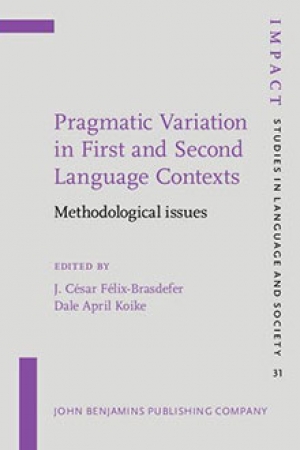
César Félix-Brasdefer co-edited with Dale Koike the book Pragmatic Variation in First and Second Language Contexts: Methodological Issues. (John Benjamins, 2012). He received the American Council on the Teaching of Foreign Languages (ACTFL) full certification to conduct official Oral Proficiency Interviews (OPI) in Spanish and an Overseas Conference Grant to present his project "Pragmatic Variation by Gender in Market Service Encounters: Empirical and Methodological Issues" at the Service Encounters and Cross-cultural Communication Symposium hosted by the Universidad de San Pablo de Olavide in Seville, Spain.
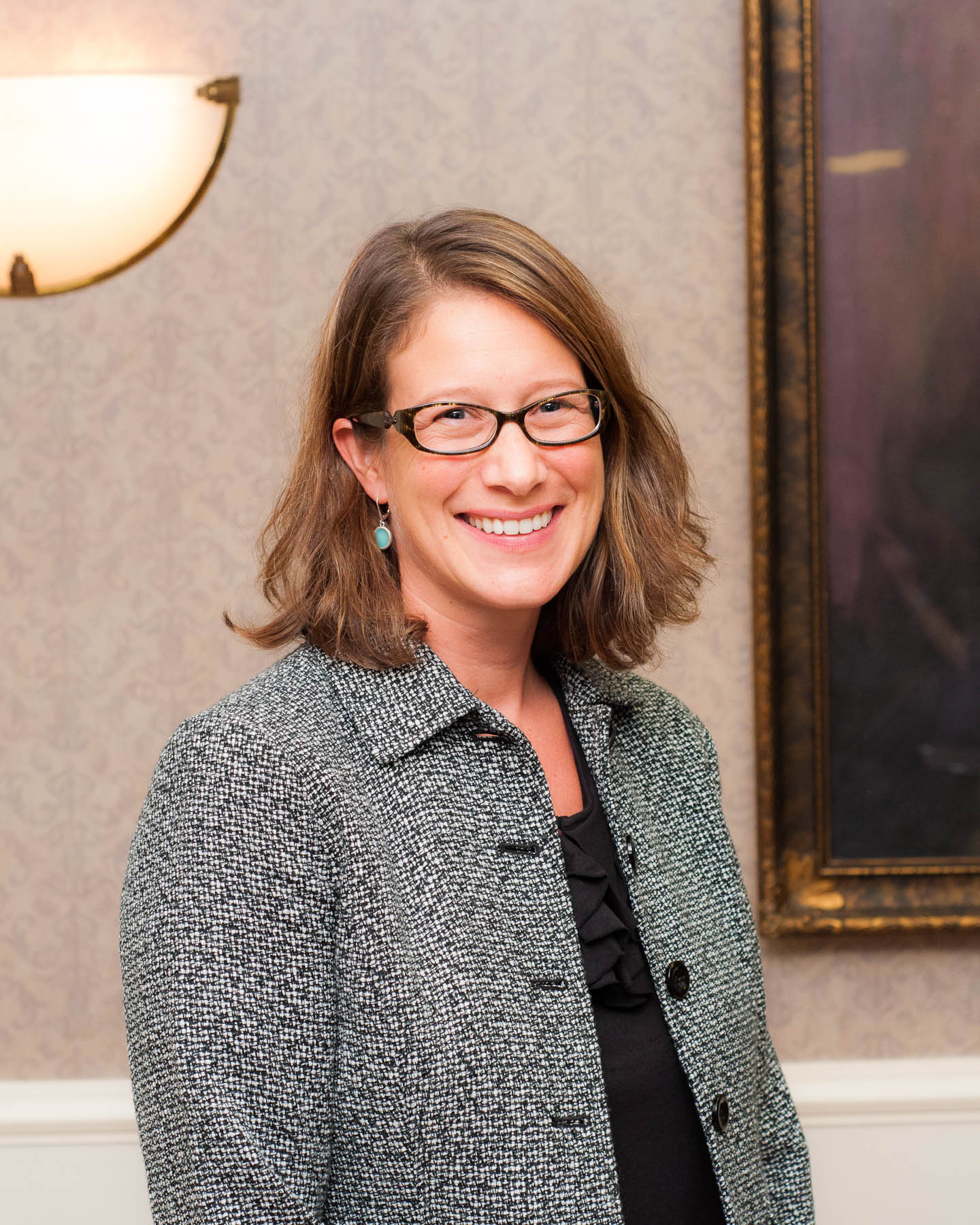
Geeslin
Kimberly Geeslin co-edited with Manuel Díaz Campos the Selected Proceedings of the 14th Hispanic Linguistics Symposium (Cascadilla Press, 2012), and co-authored the following articles: Geeslin, K. & Fafulas, S. "Variation of the simple present and present progressive Forms: A comparison of native and non-native speakers" and Geeslin, K., Garcia-Amaya, L., Hasler, M., Henrikson, N., & Killam, J. "The L2 acquisition of variable perfective past time reference in Spanish in an overseas immersion setting," both in K. Geeslin & M. Díaz-Campos, eds., Selected Proceedings for the 14th Hispanic Linguistics Symposium. (179-196; 197-213); Gudmestad, A. & Geeslin, K. "Assessing the use of multiple forms in variable contexts: The relationship between linguistic factors and future-time reference in Spanish." Studies in Hispanic and Lusophone Linguistics 4 (1): 3-34; and Geeslin, K. & Gudmestad, A. "Using sociolinguistic analyses of discourse-level features to expand research on L2 variation in forms of Spanish subject expression" in L. Plonsky and M. Schierloh, eds., Selected Proceedings of the 2009 Second Language Research Forum: Diverse Contributions to SLA. (Cascadilla Press, 2011:16-30). Geeslin was also the recipient of the Trustee's Teaching Award and the GSAC Outstanding Mentor Award.
Proposed by Laura Gurzynski-Weiss, the Research Network "Interlocutor and Instructor Individual Difference in Cognition and Second Language Acquisition" (www.individualdifferencesinsla.com) was granted official status by the International Association of Applied Linguistics (AILA). The research network (ReN) will be recognized as one of the twelve official AILA ReNs for the next three years (renewable) and will have a Symposium at the next World Congress of Applied Linguistics in Brisbane Australia (2014). Gurzynski-Weiss also received a College Arts & Humanities Grant to bring a guest speaker to campus last spring.
Israel Herrera was presented with the 2012 Avant-Garde Award by the Bloomington Community Radio WFHB 91.3 FM and the "Hola Bloomington" Radio Program for his dedicated and creative work in the cultural radio segment "Un Cafecito Con..." Herrera's program features interviews with prominent Latino and Spanish-speaking people in the Bloomington community, including IU students, faculty and local artists, and promotes cultural and academic activities in Spanish.
Virginia Hojas Carbonell received the American Council on the Teaching of Foreign Languages (ACTFL) full certification to conduct official Oral Proficiency Interviews (OPI) in Spanish.
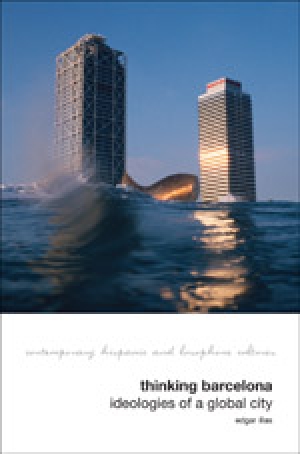
Edgar Illas published his book Thinking Barcelona. Ideologies of a Global City (Liverpool University Press, 2012) and the article "Pleasure against Ideology in Gabriel Ferrater." Hispanic Review 80.3 (2012): 467-84. He also gave the keynote address "Catalan Literature and National Alegory" at the Catalan Symposium (Department of Romance Languages & Literatures, University of Missouri, Columbia, April 2012) and received a New Frontiers in the Arts and Humanities Award for his project Mapping Catalan Ideologies: Six Operational Narratives.
Catherine Larson completed her term as department chair, during which time she helped Principal Investigator Patrick Dove secure the GAANN grant for the department. She also published the article "What Do We Mean When We Talk About Performance?: A Metacritical Overview of an Evolving Concept." Latin American Theatre Review 45.1 (Fall 2011): 23-44.
Alejandro Mejías-López gave the keynote address "Approaching Hispanic Studies from the Atlantic: Towards a New Critical Paradigm" at the First Hispanic Transatlantic Studies Conference: A State of the Art (Duke University/Wake Forest University. Winstom-Salem, April, 2012). He was also the recipient of a Center for Latin American and Caribbean Studies Conference Travel Grant, an OVPIA Overseas Conference Grant, and a Mellon Conference Travel Award from West European Studies. He was awarded a two course-release fellowship from the College Arts & Humanities Institute for his book project "Rediscovering America: Postcoloniality, Literary Authority, and the Untold History of Transatlantic Relations."
Luciana Namorato was promoted to associate professor with tenure. In September 2012, she was invited to give a lecture and conduct three workshops at the University of Zambia and a lecture at the Embassy of Brazil in Lusaka. She was also the recipient of a Research Travel Grant from the Center for Latin American and Caribbean Studies. She received a $2000 conference travel grant from IU's CIBER program in the Kelly School of Business to present a co-authored paper (with Vania Castro) titled "Teaching Portuguese for Business Outside the Classroom: A Case Study" at the University of North Carolina-Chapel Hill.

Sadlier
Darlene Sadlier was the recipient of the College of Arts and Sciences Alumni Association 2012 Distinguished Faculty Award. She also received a New Frontiers/New Perspectives Grant and published the article "Lendo Graciliano Ramos nos Estados Unidos." Revista do Instituto de Estudos Brasileiros 54 (2012): 32-52. She received an International Short-Term Visitor Grant from the Office of the Vice President for International Affairs for the visit of Nelson Pereira in Spring 2013 and was appointed to the Advisory Board of Luso-Brazilian Review.
Leonice Santamaría joined the Latino Faculty and Staff Council (LFASC) and in spring 2012 she organized and coordinated the First Mujeres Latinas Brown Bag Series (MLBBS). This successful series, sponsored by LFASC, La Casa, Latino Studies, and the Department of Spanish and Portuguese, aims to offer advanced graduate students from all the disciplines on campus an opportunity to present a paper on their research every spring semester.
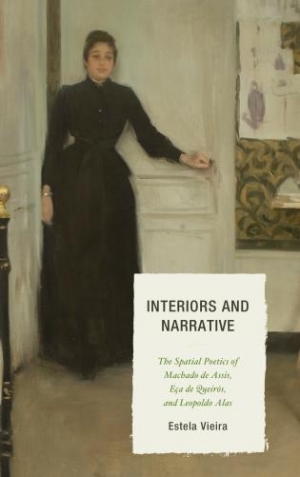
Estela Vieira published her book Interiors and Narrative: The Spatial Poetics of Machado de Assis, Eça de Queirós, and Leopoldo Alas (Bucknell University Press, 2012). She also published the article "Discovery as Mediation: Luís de Camões's Account of the Portuguese Arrival in India." Portuguese Literary and Cultural Studies 21/22 (2012): 369-82.
Reyes Vila-Belda published "Antonio Machado y su reconocimiento como maestro del simbolismo en La corte de los poetas." Bulletin of Spanish Studies. 89.2 (2012): 207-231. She received an Overseas Research and Creative Activities Grant and, in June, was interviewed by the online magazine Practica español, put out by Agencia EFE, Instituto Cervantes, and the Fundación Lengua Española (http://www.practicaespanol.com/es/reyes-vila-belda-pujanza-espanol-tiene-ver-globalizacion/art/4196/)
Steven Wagschal published "The Smellscape of Don Quixote: A Cognitive Approach." Cervantes: Bulletin of the Cervantes Society of America 32.1 (2012) 125-162. He was invited to give the Inaugural Lecture "Two Cardenios: Cervantes' and Shakespeare's" at the new IUPUI Theater opening and premier performance of Dr. Gary Taylor's complete reconstruction of William Shakespeare and John Fletcher's The History of Cardenio (1613) on April 19, 2012. He was also interviewed for the PBS television documentary CSI: Shakespeare, produced by Jim Simmons of WFYI (first aired on November 1, 2012). Wagschal was also invited to organize the 2012 "Newberry Cervantes Symposium" in Chicago (April 27, 2012).
Wagschal, along with Ryan Giles, also received a College Arts and Humanities Institute Grant for the conference they are organizing for October 2013, "Sensory Worlds: Iberian Empires and the Other Senses."
Erik Willis was promoted to associate professor with tenure.
New Faculty Profile: Ryan Giles
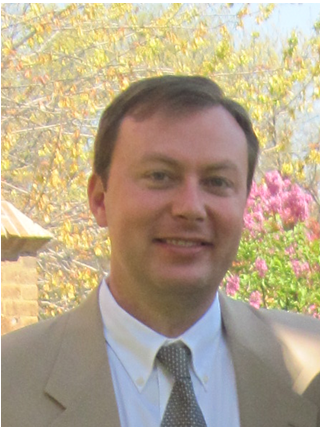
Ryan Giles
We are pleased to welcome Ryan Giles (PhD, University of North Carolina at Chapel Hill) to the department. Professor Giles specializes in Medieval and Renaissance literature and culture in an Iberian context. His research focuses on Castilian, Latin, Portuguese, and Catalan texts, with an emphasis on connections between folklore, material culture, iconography, and various types of prose and poetic genres including sermons, oaths, and parodic hagiography. He comes to us from the University of Chicago where he taught in the Department of Romance Languages as assistant professor (2005-2011) and associate professor (2012). He has published numerous peer-reviewed articles in top-tier journals, in addition to a well-received monograph entitled "The Laughter of the Saints: Parodies of Holiness in Late Medieval and Renaissance Spain" (University of Toronto Press, 2009). A section from the first chapter of his book appeared in the premier Medieval Iberian Studies journal La Corónica and was awarded the John K. Walsh Prize for outstanding essay in 2008. He is currently working on a second monograph, “Inscribed Power: Literary Amulets in Medieval and Early Modern Spain,” in which he analyzes the medieval practice of “textual amulets,” which were inscribed with incantations and worn close to the body.
Professor Giles is serving as Director of Undergraduate Studies, a position that has helped him to quickly familiarize himself with our programs and people. Coming to IU from Chicago, he has been enjoying outdoor and community activities in Bloomington with his wife and two young children.